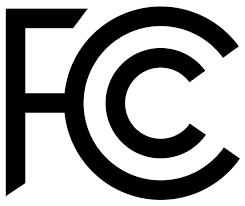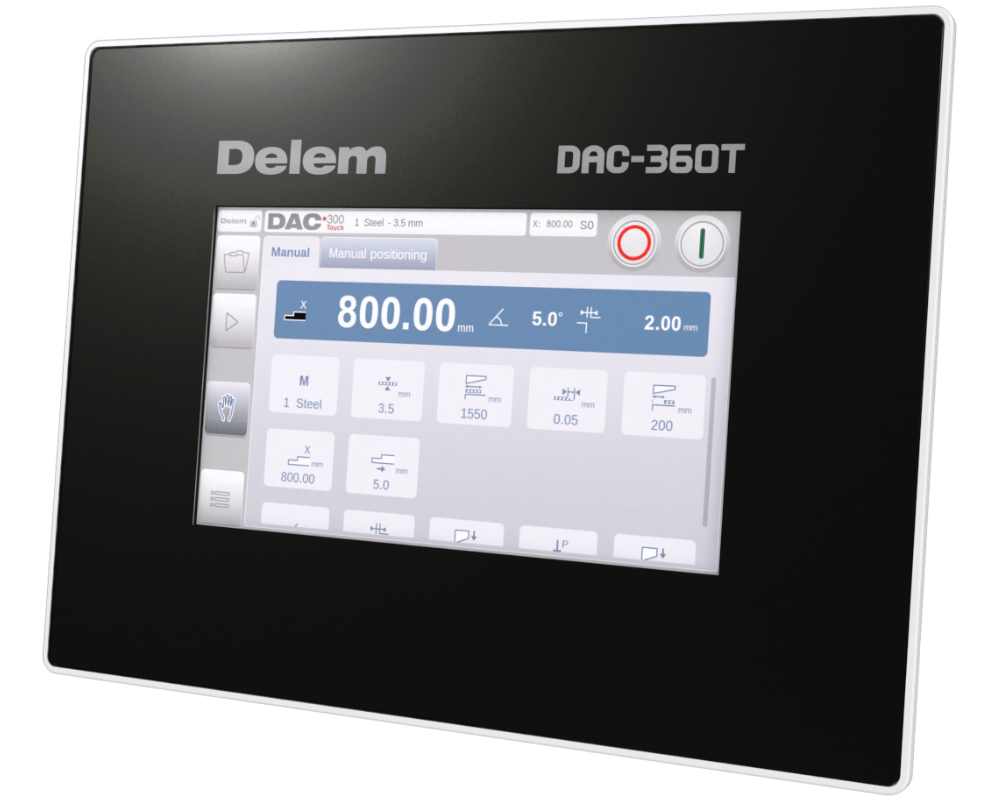FCC Certification: Ensuring Compliance and Safety in Wireless and Elec

In the world of technology and electronics, compliance with regulatory standards is not just a formality—it’s a necessity. One of the most significant certifications in the United States is the FCC Certification, a mandatory requirement for most electronic devices that emit radiofrequency energy. This certification ensures that electronic and communication products meet the technical standards set by the Federal Communications Commission (FCC) to prevent interference, promote safety, and ensure reliable communication across networks.
This article provides a comprehensive look at FCC Certification—what it is, why it’s essential, the types, testing procedures, and how businesses can obtain it efficiently.
What Is FCC Certification?
FCC Certification is an approval process mandated by the Federal Communications Commission for electronic products sold or distributed in the United States that use radiofrequency (RF) energy. It confirms that a device complies with the FCC’s technical and safety standards, primarily those that limit electromagnetic interference (EMI) and radiofrequency emissions.
The FCC regulates a wide range of products, including wireless transmitters, computers, smartphones, Wi-Fi devices, Bluetooth gadgets, and even household appliances that emit RF energy. Essentially, if an electronic product has a circuit that oscillates above 9 kHz, it likely needs to meet FCC requirements.
Why Is FCC Certification Important?
- Legal Requirement:
- Any product that emits RF energy must comply with FCC regulations before being marketed, sold, or imported into the United States. Non-compliance can lead to severe penalties, product recalls, or sales bans.
- Market Access:
- Without FCC Certification, companies cannot legally sell electronic devices in the U.S. market. The certification acts as a “passport” that enables smooth market entry.
- Prevention of Interference:
- FCC standards ensure that electronic devices do not interfere with each other’s signals. This is vital for maintaining efficient communication networks and preventing disruptions in services like Wi-Fi, radio, or emergency communications.
- Consumer Safety and Trust:
- FCC-certified devices assure consumers that the product has undergone testing for safety and compliance, building trust in the brand and product reliability.
- Reduced Liability:
- Manufacturers who obtain FCC certification can protect themselves against legal liabilities or penalties associated with the sale of non-compliant products.
Types of FCC Authorization
The FCC offers three main types of authorization depending on the product’s design and intended use:
- Certification:
- This is the most rigorous approval process and applies to products with intentional radiators, such as Wi-Fi transmitters, Bluetooth devices, and mobile phones. It requires testing by an FCC-recognized Telecommunications Certification Body (TCB). Once approved, the product receives an FCC ID, which must be displayed on the device and in the user manual.
- Supplier’s Declaration of Conformity (SDoC):
- This process is applicable for devices that emit RF energy but do not intentionally transmit signals—such as computers, monitors, and peripherals. Testing must still be performed in an FCC-accredited lab, but the manufacturer or importer is responsible for maintaining compliance documentation.
- Verification (Legacy):
- Although now replaced by the SDoC process, older devices may still fall under this category. It required the manufacturer to verify that the product met FCC limits for radiated emissions.
The FCC Certification Process
The FCC certification process can be summarized in the following key steps:
- Determine Applicable Rules:
- Identify which FCC regulations apply to your product. The FCC’s rules are primarily found under Title 47 of the Code of Federal Regulations (CFR), Parts 15, 18, 22, 24, and 90, depending on the device type.
- Pre-Compliance Testing:
- Before official testing, manufacturers often perform in-house or third-party pre-compliance tests to identify and fix potential emission issues early in the design phase.
- Testing by an Accredited Laboratory:
- The product must be tested by an FCC-accredited testing laboratory to measure radiofrequency emissions, conducted and radiated emissions, and immunity.
- Filing with a TCB (Telecommunications Certification Body):
- After testing, the laboratory submits the test reports, schematics, and product details to a TCB for review. The TCB evaluates the results and issues the official Grant of Equipment Authorization if the device meets FCC requirements.
- Labeling and Documentation:
- Once approved, the product must display the FCC ID label and include compliance statements in the user manual. Proper labeling is critical—failure to label correctly can still lead to penalties even if the product passes testing.
- Post-Market Surveillance:
- The FCC may conduct random audits to ensure continued compliance. Manufacturers must maintain all test records and documentation for at least ten years after the product’s introduction to the market.
Cost and Timeframe of FCC Certification
The cost of FCC certification varies depending on the complexity of the product. On average, testing and certification fees range between $3,000 and $15,000. For simple unintentional radiators like digital devices, costs are lower; for wireless communication products (e.g., Wi-Fi or LTE devices), costs can be significantly higher.
The process generally takes 4 to 8 weeks, depending on testing results and TCB review times. Pre-compliance testing and product redesigns can extend the timeline, so early planning is essential.
Consequences of Non-Compliance
Failing to obtain FCC certification before selling or importing electronic devices can lead to serious consequences, such as:
- Hefty fines (up to $147,000 per violation per day)
- Product seizure or recalls
- Bans on sales or imports
- Damage to brand reputation and loss of consumer trust
In addition, e-commerce platforms like Amazon and eBay often require FCC documentation before listing wireless or electronic products.
How to Ensure Smooth FCC Compliance
- Engage a Testing Partner Early:
- Collaborate with an FCC-accredited lab during the product design phase to identify potential compliance issues early.
- Use Pre-Test Evaluation:
- Pre-compliance testing saves time and money by catching emission problems before formal certification.
- Maintain Proper Documentation:
- Keep detailed records of test results, design files, and compliance statements for future audits.
- Monitor Design Changes:
- Even small design or component changes can affect RF performance, requiring re-testing or re-certification.
Conclusion
FCC Certification plays a critical role in ensuring that electronic and wireless products operate safely, efficiently, and without interference. For manufacturers and importers, compliance is not only a legal requirement but also a mark of quality and reliability in the competitive U.S. market.
By understanding the FCC certification process—its requirements, testing procedures, and benefits—companies can streamline market entry, avoid costly setbacks, and build trust with consumers. In an era of rapidly evolving technology, regulatory compliance is not just about meeting standards—it’s about ensuring that innovation thrives responsibly and sustainably.
Comments
You must be logged in to comment.
Latest Articals
-

How to Apply for Student Visa Successfully
Expert Guidance for Your Study Abroad Dream by Ridge OverseasStudying abroad is one of the most exciting journeys in a student’s life. It brings global exposure, a world-class education system, and opportunities for a bright career. But before you step into a new country, getting a student visa is the most important requirement.Many students struggle or feel overwhelmed because they don’t know how to apply for student visa successfully — which documents to submit, how to prove financial stability, how to crack the interview, and what mistakes to avoid.This is where Ridge Overseas comes in as a trusted student visa consulting partner. With expert assistance and years of experience, Ridge Overseas ensures your application is accurate, complete, and approved in a timely manner.✅ Step-by-Step Guide: How to Apply for Student VisaLet’s break the process into simple and achievable steps:1️⃣ Choose the Right Country and CourseYour study abroad decision should match:✔...
-
The Keychain iPhone Charger You’ll Actually Use — Not Just Carry
The End of “Low Battery” Panic We’ve all been there standing in a checkout line, traveling, or waiting for a ride, when that dreaded “1% battery” alert flashes. You pat your pockets, rummage through your bag, and realize your cable and power bank are both at home. In moments like these, a keychain iPhone charger feels like the superhero gadget you wish you’d always carried. And unlike many accessories that end up buried at the bottom of a drawer, this tiny lifesaver is one you’ll actually use not just keep for show. Let’s explore why this pocket-sized tool is becoming an everyday essential for modern life. 1. Why the Keychain iPhone Charger Is Changing Everyday Carry The keychain iPhone charger is more than a cute tech trinket it’s a practical, powerful backup that blends into your daily routine. For years, portable chargers meant carrying bulky power banks or tangled cables. But the keychain version reimagines convenience....
-

Improve Cutting Accuracy with Shear Controls
Smart Technology for Maximum Precision by DSC AutomationIn today’s competitive manufacturing environment, accuracy and consistency are everything. When sheet metal cutting goes wrong — even by a few millimeters — it can result in material loss, production delays, and increased costs. This is why modern industries depend on innovative automation systems like Shear Controls to maintain high standards of precision and productivity.DSC Automation, a trusted leader in industrial automation solutions, provides highly reliable and accurate shear controls designed specifically for metal fabrication sectors. With decades of technical expertise, DSC Automation ensures that every cut made on a shear machine supports production excellence.Why Precision Matters in Sheet Metal CuttingIndustrial shearing involves powerful machinery cutting thick metal sheets into required shapes and dimensions. Slight deviations in measurement may lead to:❌ Rejected parts ❌ Rework and increased labor hours ❌ Wastage of expensive metals ❌ Inaccurate assembly in next production stagesTo avoid such...
-
.png)
The Ultimate Guide to Using a Grading Calculator for Academic Success
Tracking academic performance has never been easier, thanks to modern digital tools. Whether you're a student monitoring your progress or an educator simplifying assessments, learning how to use a grading calculator effectively can greatly improve your educational experience.What Makes an Effective Grade Calculator?A good grade calculator is more than just a number cruncher—it’s an academic companion that delivers instant insights into your performance. These tools have changed how students and teachers manage grades, offering speed and accuracy that manual calculations can’t match.For example, students often search “18/20 grade” to find their percentage—90%, which equals an A grade. This quick conversion shows why grading calculators have become essential in education today.The Evolution of Digital Grading ToolsTraditional grading required manual calculations on paper, which were time-consuming and prone to errors. Today’s online grade calculators eliminate those challenges by offering:Instant Accuracy: Guaranteed error-free results every time.Time Efficiency: Immediate outcomes without manual math.Accessibility: Available...
-

Stress Less, Celebrate More – Wedding Planners in Amritsar
Bringing Dream Punjabi Weddings to Life with Divine WeddingsPunjabi weddings are known around the world for their excitement, colors, traditions, music, and of course, the love shared between families. From the very first function to the grand finale — the Anand Karaj or the lavish reception — every ceremony deserves to be perfect. But planning such a big celebration is not an easy task.There are endless questions…✔ Which venue is available? ✔ Who will handle décor and entertainment? ✔ How do we manage guests? ✔ How to take care of rituals and timelines? ✔ What about food and photography?This is where Divine Weddings, one of the leading Wedding Planners in Amritsar, steps in — to turn your stress into joy and your dreams into reality.💍 Why Hire Wedding Planners in Amritsar?Weddings in Amritsar are full of culture, joy, and celebrations that stretch over several days. Handling everything alone can become...
-

Best Restaurants in Providence for Halal Cuisine
Looking for restaurants near me in Providence? Experience bold spices, aromatic herbs, and fresh halal-certified meals that bring together Indian and Mediterranean flavors. Highly rated by locals, this family-friendly restaurant offers dine-in, takeout, and delivery, ensuring everyone can enjoy authentic dishes at their convenience.✅ Authentic Indian-Mediterranean flavors✅ Dine-in, takeout, and delivery✅ Highly rated by locals👉 Visit: Best Restaurants in ProvidenceAddress: 269 Valley St, Providence, RI 02909, United StatesPhone: +1 401-270-2155Hours: Opens 11 amDelivery: 10 am–12 am